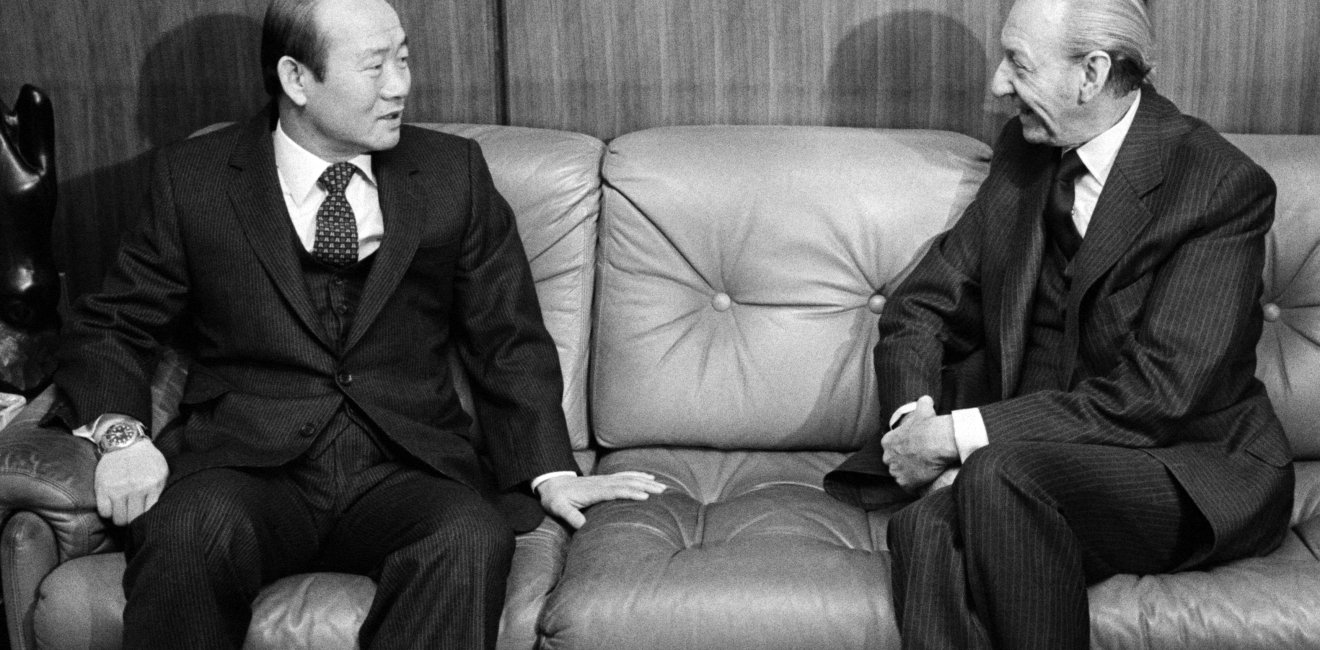The Gwangju Uprising: A Battle over South Korea's History
Se Young Jang explores the contested memory of Gwangju, South Korea's most famous democratic uprising.

A blog of the History and Public Policy Program
Se Young Jang explores the contested memory of Gwangju, South Korea's most famous democratic uprising.

The contested memory of South Korea's most famous democratic uprising
To South Koreans, Gwangju is not just the name of a southwestern city on the Korean Peninsula. The site of a large-scale civil uprising which was brutally suppressed by Army Major General Chun Doo-hwan’s military junta in 1980, Gwangju also symbolizes the early years of South Korea’s democratic movement.
In October 1979, President Park Chung Hee was assassinated by his own spy chief, an act that led to the declaration of martial law in South Korea. While the junta dispatched military forces to various parts of the country, students and ordinary citizens in Gwangju, beginning on May 18, 1980, participated in organized protests against the military government.
What started small grew rapidly. Protesters numbered in the tens of thousands. In response, General Chun sent two battalions of the ROK Airborne Brigade with tanks and helicopters to quell the protesters. The military operation—ironically codenamed “Splendid Holiday”—resulted in hundreds of civilian deaths and thousands of injuries. Gwangju is recorded as the bloodiest instance of government repression in contemporary Korean history.
For many years, Gwangju’s “May 18th Democratic Uprising” was a forbidden word in Korean society. South Koreans could not speak openly or freely about the Gwangju Uprising. Books related to Gwangju were strictly censored or prohibited from even being published. Although a number of political dissidents and activists sought to inherit and develop the spirit of Gwangju, they were persecuted. A well-known eyewitness account of the Gwangju Uprising, Kwangju Diary: Beyond the Death, Beyond the Darkness of the Age, was first released in 1985. In order to disguise the identity of real authors including Lee Jae-eui, it was published under the name of a famous writer, Hwang Sok-yong. The publisher of Kwangju Diary was imprisoned afterwards, and Hwang was also investigated. The book itself was banned by the government until 1988 when Chun finally stepped down.
Despite being banned, hundreds of thousands of illegal copies of Kwangju Diary were secretly distributed in Korea and abroad during Chun’s dictatorship, and approximately one million more copies were sold after 1988.
A testament to the efforts of Gwangju citizens to collect, preserve, and spread records of the uprising, they opened the May 18 Archives in 2015. A repository for a variety of written, oral, and filmed materials related to the 1980 uprising, the collection includes ROK government and military documents, court records, and declassified US documents. Among them, 4,271 documents (858,900 pages) and 2,017 films were inscribed on the UNESCO Memory of the World Register in 2011. Furthermore, efforts from some American journalists to inform the world of Gwangju’s hidden history are noteworthy. Tim Shorrock has pushed for the disclosure of a number of US government documents related to the Gwangju Uprising, and Terry Anderson, a former AP correspondent who covered the uprising himself, provided his eyewitness of account of what really happened there in May 1980.
Despite these efforts to shape public memory of the May 18th Democratic Uprising, the legacy of Gwangju is contested. Over the past nine years under South Korea’s conservative leadership, unsubstantiated allegations on North Korean ties to the uprising were reinforced. Some far-right organizations and political commentators, including Jee Man-won, reiterated claims that Pyongyang dispatched the special forces of the Korean People’s Army to Gwangju in May 1980 to support those southern “rioters.” Afterwards, several lawsuits were filed by a number of Gwangju groups and citizens, including Roman Catholic priests, against those far-right commentators.
Allegations of DPRK involvement in the uprising are negated by the investigation of the ROK Defense Ministry’s Truth Commission in 2007. They are also challenged by evidence from the United States. According to CIA documents declassified in 2004, North Korea did not “appear to be taking any military steps in response to the deteriorating political situation in the South” in early May of that year. During the uprising, the CIA maintained that “regarding the current situations…there [were] no signs of anything untoward underway in North Korea.” This position was echoed by former US Ambassador to South Korea, Donald Gregg, who was an intelligence specialist in the National Security Council in May 1980, at a recent seminar on the Gwangju Uprising held at the United Nations.
The efforts of the South Korean government to discredit the Gwangju Uprising will likely come to an end with the inauguration of President Moon Jae-in. In a ceremony on May 18, Moon, for instance, said that “March for the Beloved” was not just a song but represented the spirit of the Gwangju Uprising itself. Under the previous conservative leadership, the ROK government had banned this iconic song from being sung in unison at state events, reasoning that it was used in a North Korean movie. Many believe, however, that the ban was ideologically motivated. For the first time since 2008, participants in the May 18 ceremony were allowed to sing the song together.
A human rights lawyer by training, Moon also ordered a reinvestigation of the Gwangju massacre. This came in the wake of Chun Doo-hwan’s denial in his recently published memoir of his involvement in and responsibility for the massacre and his dismissing of the Gwanju Uprising as just a riot. A court will soon decide whether or not to grant an injunction against the publication and distribution of Chun’s memoir.
The Gwangju Uprising symbolizes South Koreans’ spirit of resistance to military rule, their aspirations for democracy and freedom, and, last but not the least, a dignified self-control even during such turbulent times. The citizens of Gwangju failed to accomplish what they longed for in 1980—the democratization of the Republic of Korea—but we can see now how history unfolded.


A leader in making key foreign policy records accessible and fostering informed scholarship, analysis, and discussion on international affairs, past and present. Read more


The Cold War International History Project supports the full and prompt release of historical materials by governments on all sides of the Cold War. Read more


The North Korea International Documentation Project serves as an informational clearinghouse on North Korea for the scholarly and policymaking communities, disseminating documents on the DPRK from its former communist allies that provide valuable insight into the actions and nature of the North Korean state. Read more



